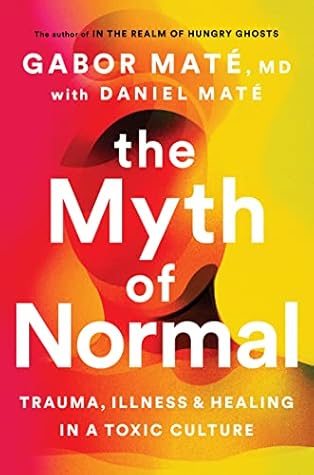More on this book
Community
Kindle Notes & Highlights
by
Gabor Maté
Read between
November 8 - December 9, 2024
The meaning of the word “trauma,” in its Greek origin, is “wound.” Whether we realize it or not, it is our woundedness, or how we cope with it, that dictates much of our behavior, shapes our social habits, and informs our ways of thinking about the world.
Really, of course, my great blessing is to be married to someone with healthy boundaries, who sees me as I am now and who will no longer bear the brunt of my prolonged and unplanned visits to the distant past.
“Trauma is not what happens to you but what happens inside you” is how I formulate it.
As the lost connection gets internalized, it forges our view of reality: we come to believe in the world we see through its cracked lens.
Trauma Splits Us Off from Gut Feelings
The crucial difference is this: once the hawk is gone, the possum is free to go about his business, his survival strategy having succeeded. A traumatized nervous system, on the other hand, never gets to unfreeze.
The freedom to choose develops as the brain develops. The more severe and the earlier the trauma, the less opportunity response flexibility has to become encoded in the appropriate brain circuits, and the faster it becomes disabled.
One may also come to dismiss painful realities by habitually lying to oneself and others.
If we treat trauma as an external event, something that happens to or around us, then it becomes a piece of history we can never dislodge. If, on the other hand, trauma is what took place inside us as a result of what happened, in the sense of wounding or disconnection, then healing and reconnection become tangible possibilities.
“An unexamined life is not worth living. As long as one doesn’t examine oneself, one is completely subject to whatever one is wired to do, but once you become aware that you have choices, you can exercise those choices.”


